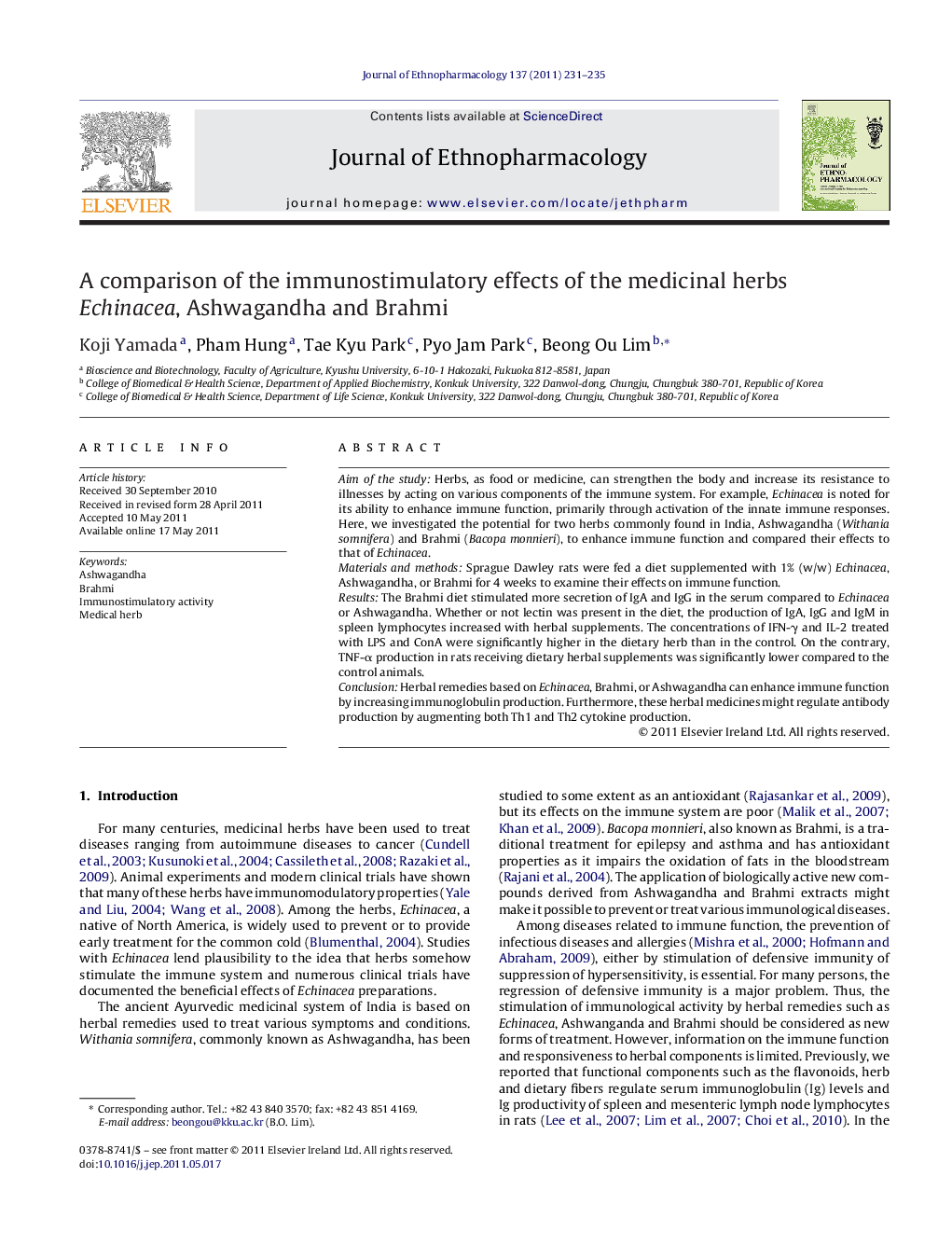| Article ID | Journal | Published Year | Pages | File Type |
|---|---|---|---|---|
| 5838658 | Journal of Ethnopharmacology | 2011 | 5 Pages |
Aim of the studyHerbs, as food or medicine, can strengthen the body and increase its resistance to illnesses by acting on various components of the immune system. For example, Echinacea is noted for its ability to enhance immune function, primarily through activation of the innate immune responses. Here, we investigated the potential for two herbs commonly found in India, Ashwagandha (Withania somnifera) and Brahmi (Bacopa monnieri), to enhance immune function and compared their effects to that of Echinacea.Materials and methodsSprague Dawley rats were fed a diet supplemented with 1% (w/w) Echinacea, Ashwagandha, or Brahmi for 4 weeks to examine their effects on immune function.ResultsThe Brahmi diet stimulated more secretion of IgA and IgG in the serum compared to Echinacea or Ashwagandha. Whether or not lectin was present in the diet, the production of IgA, IgG and IgM in spleen lymphocytes increased with herbal supplements. The concentrations of IFN-γ and IL-2 treated with LPS and ConA were significantly higher in the dietary herb than in the control. On the contrary, TNF-α production in rats receiving dietary herbal supplements was significantly lower compared to the control animals.ConclusionHerbal remedies based on Echinacea, Brahmi, or Ashwagandha can enhance immune function by increasing immunoglobulin production. Furthermore, these herbal medicines might regulate antibody production by augmenting both Th1 and Th2 cytokine production.
Graphical abstractDownload high-res image (98KB)Download full-size image
